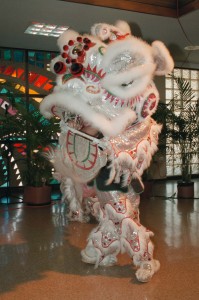The 26th Annual International Festival – TREASURES
Reasoning and Thinking in a Global Environment
by Carl Hefner

Kapi‘o File Photo
It is with great pride that we present the many and varied events of the 26th Annual International Festival at KapCC. For students at KapCC, this is a great opportunity to learn about other cultures, to hear lectures about world events and issues, and for students, faculty, staff and community to enhance their understanding of the peoples and cultures of the world. The 26th International Festival is truly a landmark in the history of international education on the KapCC campus, and provides all of us an opportunity to become engaged global citizens.
I am very pleased to have been a guiding force, along with others, during the 22 years that I have directed the International Festival. But I could not have done so without my own teachers, and experiences along the way.
As an anthropologist, I have been fortunate to travel many parts of the world, first for my M.A. and Ph.D. work, and now for research and professional development. I have had incredible experiences, and truly believe that traveling the world, living and socializing with everyday people, and learning others’ languages and cultures is the best way to accumulate knowledge and wisdom about the world and its diversity of peoples. My travels have taken me to a diverse number of countries of the world including Japan, China, Vietnam, Laos, Cambodia, Thailand, Singapore, Malaysia, Indonesia, Canada, Mexico, Argentina, Chile and Myanmar.
In order to truly begin to understand a culture, I am an ardent supporter of learning the language, which is a window to their world. In my fieldwork in Indonesia, I had to become fluent in the national language, known as Bahasa Indonesia. This was a requirement of the graduate anthropology program at UH, and as it turns out extremely important. Without knowing the language, you miss out on so much of the content of conversations amongst people, and the meaning of many social interactions is lost. When you understand the language, their world begins to open up to you, and you become more accepted because there is an effort on your part to join in as a “participant” in their culture. You are also enabled to read their media, including books, magazines, online blogs, Facebook, and older texts, and do research in their libraries to do historical background work for your studies.
I also highly encourage students to apply for scholarships for language and culture study, such as the Freeman Scholarships and numerous other scholarships to Japan, China, Korea, and Vietnam on this campus. Personally, I feel very fortunate to have received a scholarship from the East-West Center for academic pursuits toward my Ph.D. in anthropology. I will always be tremendously grateful to the East-West Center for a full scholarship that enabled me to complete my studies, and today I give back the EWC as President of the East-West Center Alumni Association—Hawaii Chapter. In doing this, I feel connected to East-West Center alumni all over the world, and have learned much from colleagues and friends wherever I have traveled to international conferences. And my understanding of the world has increased exponentially.
One of the things I have discovered about the world is that all humans living on this earth have so many things in common. We all have basic wants and needs that are fulfilled by our cultures. Cultures ARE what make us different, and we must learn to understand and accept that there is no one way of life that suits all people. It therefore is quite important to learn about and respect other cultures of the world.
Therefore, take advantage of the many excellent courses that are offered at KapCC that enable a student to explore the history, languages, cultures, politics, religions and contemporary issues that are part of our world, along with plans for study abroad.
Studying abroad will enable a student to gain in-country experience of other cultures, further hone language skills and generally broaden your mind. I believe that having an open mind is one step closer to developing into an international thinker capable of dealing with worldly and global issues with critical insights, which ultimately may not only help the student, but raise the level of consciousness of the world’s citizens.
